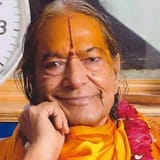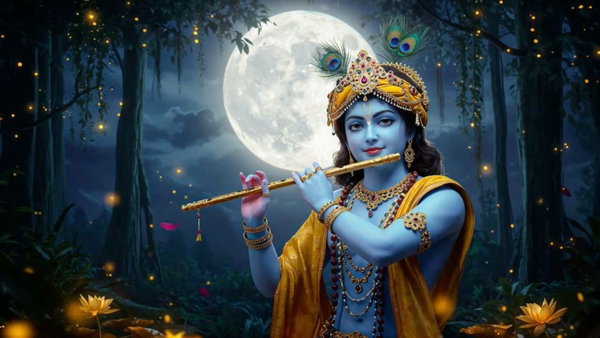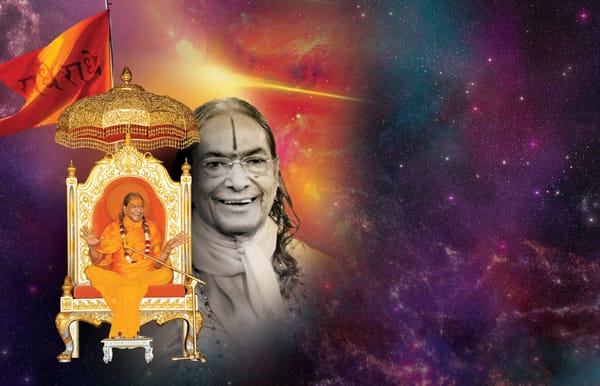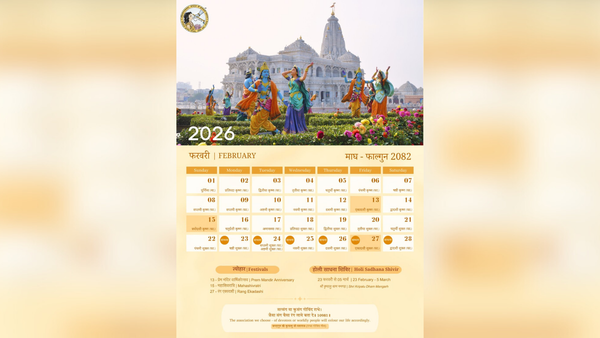When the Earth Wept: The Story Behind Shri Krishna’s Arrival
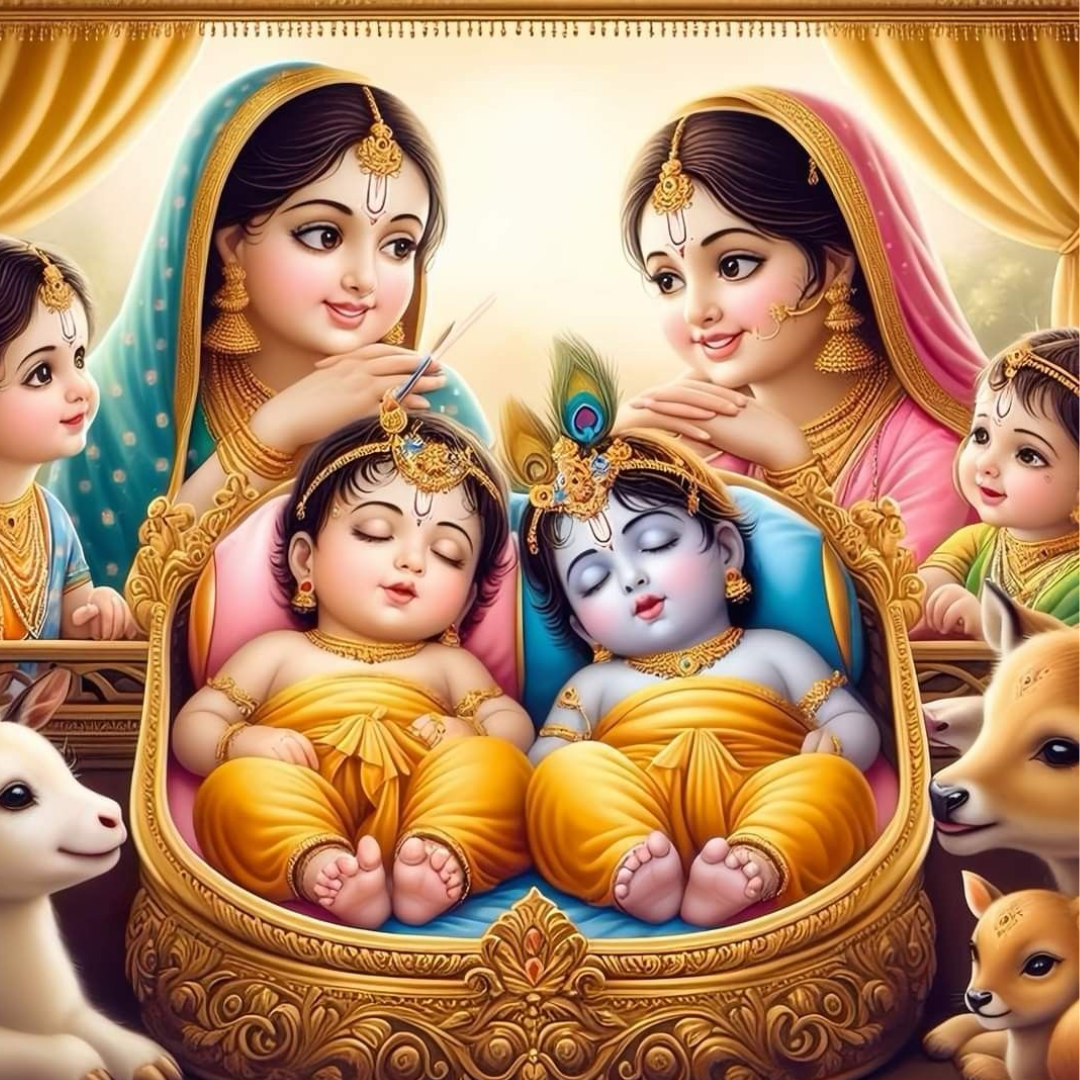
There once were two Prajapatis named Vrishni and Sutapa. They performed penance for twelve thousand celestial years. A day of the celestial Gods is six months long, and their night is six months long. In twenty-four hours of the celestial Gods, a year passes for us - our 360 days make one day for them. According to this calculation, one thousand years of the celestial gods equals 360,000 of our years. Twelve thousand celestial years equals 4,320,000 of our years - they performed penance for that entire duration. Then God appeared and said to them, "Ask for a boon."
They said, "We want a son like You."
God became silent and started thinking, "From where shall I bring a son like Me?"
God is One - na tatsamāśchābhyadhikaścha dṛśyate.
No one is equal to God, nor is anyone greater. All are His servants.
Again, both of them repeated their request two more times, "We want a son like You."
Then God said, "Alright, go, the boon is granted."
Then He thought, "They have asked for this boon three times. So I will descend three times and become their son."
Out of those three descendants, the last one became Vasudev and Devaki. At that time, great demon kings came to power in Braj. They began troubling the Brahmins, stopping sacrificial rites from being performed, and banning devotion to God.
So Mother Earth went to Brahmā and wept, "You are the creator, the grandsire of all. This injustice is happening - please think of something to resolve this."
Then Brahmā, along with Shankar Ji, Indra, and others, went to God at Ksheersāgar (the Milky Ocean) and all entered into samādhi, starting to pray.
Then, in Brahmā's samādhi, a voice from the sky said, "I will become the son of Vasudev." At that time -
Bhūmeḥ suretaravarūthavimarditāyāḥ kleśavyayāya kalayā sitakṛṣṇakeśaḥ.
In his samādhi, Brahmā saw that God pulled out two strands of hair from His head and showed them - one black and one white - and gestured, "I will come taking these two incarnations - as Krishna (black) and Balaram (fair-complexioned) - and will relieve the burden of the Earth."
Now the question arises, "Does God's hair also turn grey?"
If even the celestial Gods do not grow old, how could God become old? His body is made of consciousness and bliss. Every part of Him is Sat-Chit-Anand.
So how can there be white hair? Therefore, 'keśa' must mean something else -
"Aṁśavo ye prakāśante mama te keśa saṁjñitāḥ."
God has two types of light - one white and one black. These two are God's ‘aṁśu’, meaning radiance.
One 'sita' and one 'krishna' - white and black - He says,
"These are My two powers that will descend." Balaram is also God, and Shri Krishna is also God.
When Veda Vyas counted the descensions, after the eighteenth descension, the nineteenth descension was that of Balaram, and the twentieth descension was of Shri Krishna. Both of them are God.
The rest of the incarnations are their partial expansions -
"Ete cāṁśakalāḥ puṁsaḥ kṛṣṇas tu bhagavān svayam."
Shri Krishna is God Himself, and all others are His parts.
So 'sita-kṛṣṇa-keśaḥ' - white and black means God's two great powers will incarnate in the forms of Balram and Krishna - this is the meaning - not hair. Even the hair of celestial Gods does not turn white. God always remains in the form of a sixteen-year-old youth in Golok.
And in our world, He goes through childhood through adolescence, that is all - meaning He grows from birth up to sixteen years. Then even if He remains for a hundred years, He stays in that same youthful form because His body is divine; it is not made of the five gross elements.
Therefore, the meaning of 'sita-kṛṣṇa-keśaḥ' is that God will descend endowed with two powers - this is the secret.
Recommended books by Jagadguru Shri Kripalu Ji Maharaj related to this topic:

